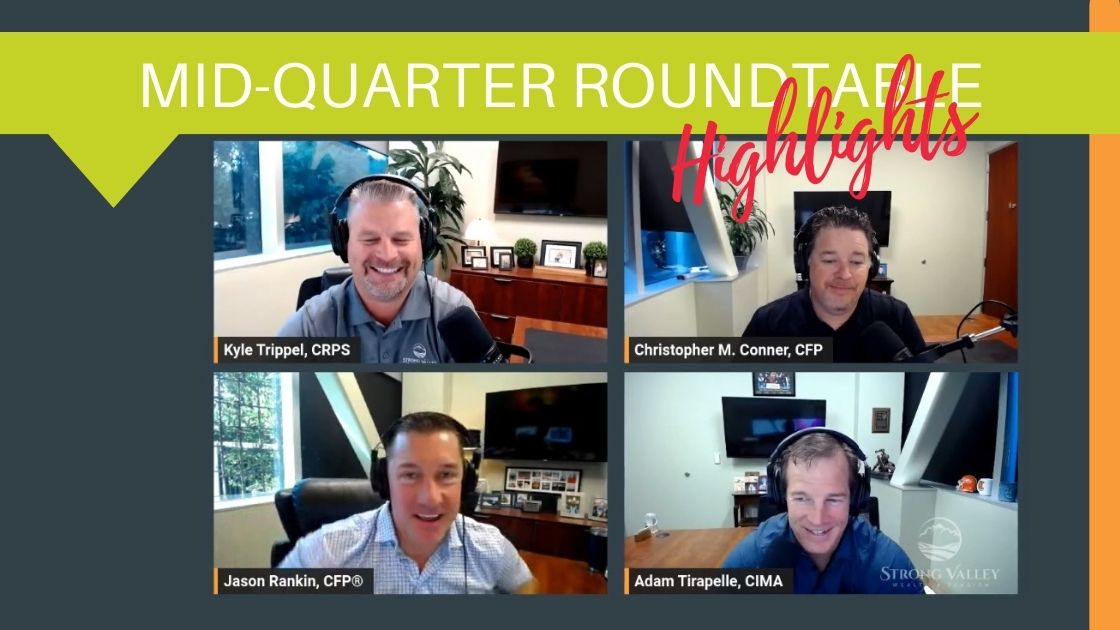You are now leaving the Strong Valley Wealth & Pension, LLC ("Strong Valley") website. By clicking on the "Schwab Alliance Access" link below you will be entering the Charles Schwab & Co., Inc. (“Schwab”) Website. Schwab is a registered broker-dealer, and is not affiliated with Strong Valley or any advisor(s) whose name(s) appears on this Website. Strong Valley is/are independently owned and operated. Schwab neither endorses nor recommends Strong Valley. Regardless of any referral or recommendation, Schwab does not endorse or recommend the investment strategy of any advisor. Schwab has agreements with Strong Valley under which Schwab provides Strong Valley with services related to your account. Schwab does not review the Strong Valley website(s), and makes no representation regarding the content of the Website(s). The information contained in the Strong Valley website should not be considered to be either a recommendation by Schwab or a solicitation of any offer to purchase or sell any securities.

As you prepare your home for cooler weather or harvest the final fruits of your summer labor, Fall is an ideal time to evaluate and prepare for your financial future as well. Here are 5 steps you can take this season to help prepare for a more stable and prosperous financial future.

As the days grow shorter and the temperatures cooler, we are officially in the Fall season—a time often associated with preparation, change, and reflection. Just as we prepare our homes for colder weather or harvest the final fruits of summer labor, Fall is an ideal time to evaluate and prepare your financial future.
Here are five important financial steps you can take this season to work to position yourself for a more stable and prosperous future:
Fall is a great time to review your budget before the year's end and make necessary adjustments for the holidays or any upcoming year-end expenses. With the cost of living fluctuating due to inflation, energy prices, and personal changes, it’s important to revisit your monthly spending plan.
Begin by:
As the year winds down, tightening your budget can help you save for holiday expenses without incurring unnecessary debt.
Whether you’re just starting to save for retirement or nearing it, fall is an excellent time to evaluate your retirement contributions. Check to see if you're on track with your savings goals and adjust your contributions if necessary. The end of the year is also a great opportunity to take advantage of tax-deferred contributions to your retirement accounts.
Consider:
Many people overlook the importance of periodically reviewing their insurance policies, which can leave gaps in coverage or lead to overpaying for services. As fall arrives, assess whether your insurance needs have changed.
Important insurance areas to consider:
With the holiday season approaching, it’s easy to accumulate credit card debt, especially if you’re planning to travel or buy gifts. However, going into the new year with significant debt can slow down your long-term financial growth. Fall offers the opportunity to assess your debt load and implement a plan to reduce it before the year's end.
Try the following:
Paying off or reducing debt now will position you better for the upcoming year and leave you with more resources to put toward savings and investments.
As the year winds down, fall is an excellent time to review your investment portfolio and consider tax-efficient strategies. If you’ve made gains in your investments this year, now is the time to review whether tax-loss harvesting or charitable contributions could benefit you.
Some things to think about:
A good tax strategy can help minimize your liability and leave you with more cash to invest or save for your future.
As the leaves change and fall, it's a reminder that seasons in life also change, often faster than we expect. By taking time this fall to review and adjust your financial strategies, you can ensure a more secure financial future. Whether it's reworking your budget, increasing your retirement contributions, or paying down debt, each small step you take today will contribute to long-term financial stability. Take action this fall and position yourself for a financially healthy winter and beyond!



